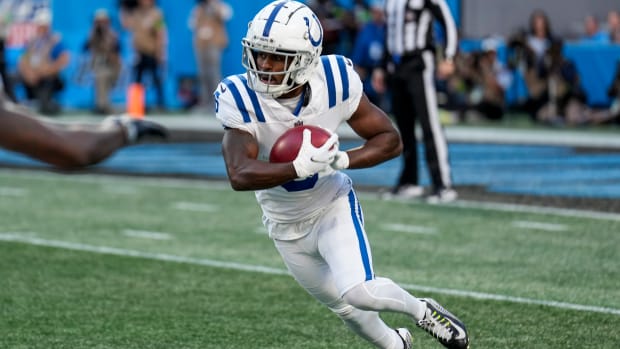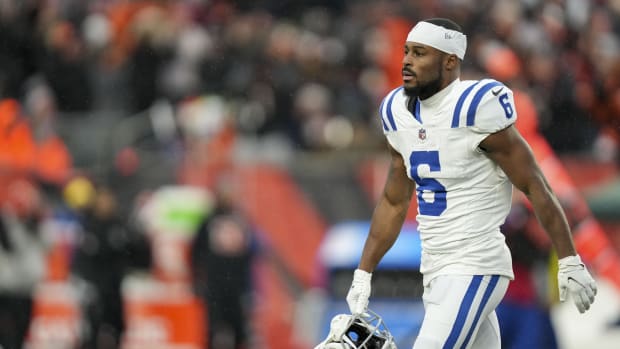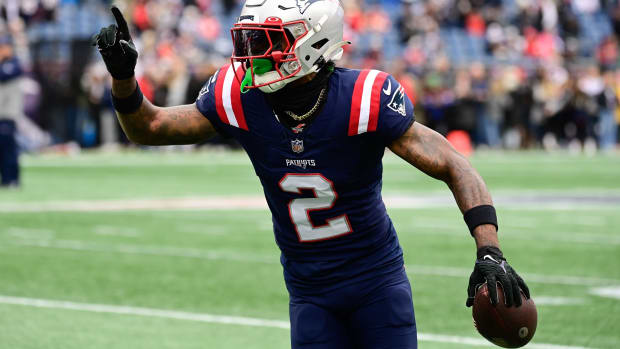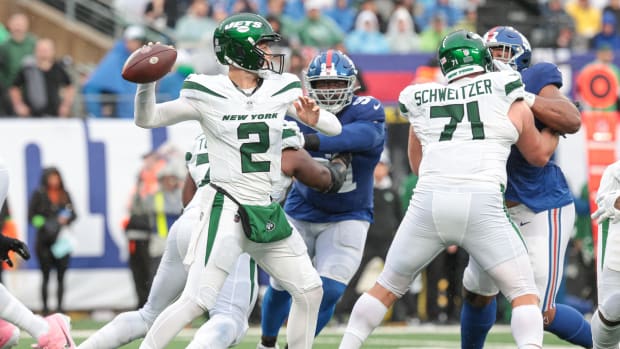If Saquon Barkley Wants to Get the Giants Back on Track, He's Going to Need Help
Giants running back Saquon Barkley probably can’t wait to put 2019 behind him.
In addition to the losing--the Giants have lost nine straight and are at 2-11 on the season--Barkley also entered uncharted waters this year. A high ankle sprain in Week 3 cast a pall over his 2019 season, leaving people to wonder just how much that injury robbed him of his superhuman- like abilities he displayed as a rookie.
But it’s the losing that has chewed away at Barkley. It was bad enough that he had to sit idly by when the Giants’ current nine-game losing streak began in Week 5 against the Vikings.
But since returning to the lineup, Barkley has struggled with himself not only physically, but also mentally, the latter of which has begun to take a toll on the second-year player.
Barkley has insisted that the injury is in the rearview mirror, but on Thursday, he admitted that the after-effects of the injury--the mental part--might have seeped into his performance at times.
“It’s not so much it’s the injury that, I guess you could say, is holding me back,” Barkley said. “Even though physically you feel like you’re back, mentally you might be telling yourself that you’re back, but you watch yourself on film, and you can see the way that you’re running, and you’re protecting yourself.
“You don’t really think you’re doing it, but naturally, it’s just happening. But I think I’m getting better and better each week. My body is getting healthier and healthier each week. Try to finish the season off strong.”
Barkley’s self-assessment aligns with what he’s put out there on tape. There have been times, for instance, where he’s been hesitant to hit the hole with the decisiveness he showed last year, almost as though he wasn’t trusting something along the way as the play developed.
Then there were other times where Barkley had an opportunity to turn on the jets or power through traffic only to again show trepidation.
In his last three games, Barkley has rushed for 208 yards on 53 carries, nearly 4.0 yards per carry. He’s also posted his best rushing yardage totals (59, 83, and 66 yards) of the season after hitting a two-game slump against Dallas and the Jets in which he rushed for 29 yards on 27 carries.
But not all of Barkley’s issues are related to his physical or mental conditions. Since returning from his ankle injury, Barkley has averaged 16.7 rushing attempts per game. However, there’s been a significant discrepancy between the average number of rushing attempts in the first half of games (10.0) versus the second half (6.7).
While the Giants have ended up behind in those games, there have been times when the game has still been within reach, and yet the Giants have still gone away from their best player, perhaps too soon.
“A lot of teams, the mindset is to go throw the ball to come back to try to win the game,” Barkley said. “In Chicago, they got up on us. ... But you’ve got to be able to continue to run the ball into the fourth quarter.
“Obviously, everyone wants those big 60-yard, 80-yard runs, but sometimes those come by just wearing defenses down. We haven’t really gotten the opportunity to do that. I don’t think we’ve been in a four-minute situation yet this season, or that I’ve been a part of.”
As Barkley continues to frantically search for ways to help the Giants break what’s been a losing culture, perhaps the coaching staff can help him by sticking with their best player even at the first sign of trouble.





